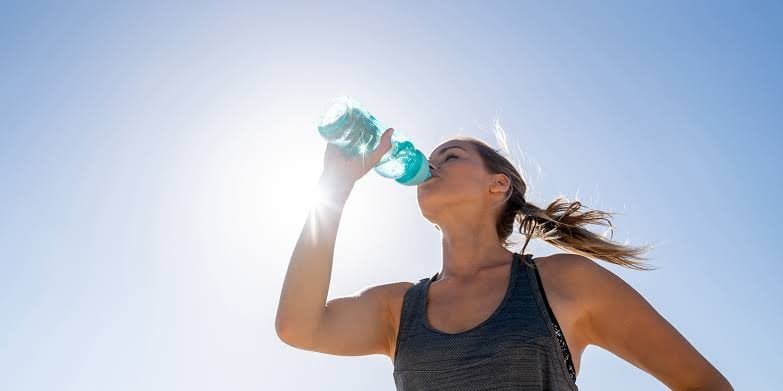Hydration is a crucial aspect of sports performance, and it is often underestimated by many athletes. The importance of hydration in sports performance cannot be overstated, as it plays a significant role in maintaining overall health and improving athletic performance.
Athletes who neglect hydration put themselves at risk of injury, poor performance, and even life-threatening conditions such as heat stroke. In this blog post, we will explore the importance of hydration in sports performance, and how athletes can ensure they are properly hydrated before, during, and after sports activities.
People Also Read: How to Prevent Common Sports Injuries Naturally
Why Hydration is Important in Sports Performance
Water is an essential component of the human body, accounting for over 60% of the body’s weight. In sports, proper hydration is essential for optimal performance. The body needs water to regulate body temperature, transport nutrients, and remove waste products from the body. Dehydration can cause muscle cramps, fatigue, and poor performance, leading to poor results in competition. Additionally, dehydration can cause heat stroke, a life-threatening condition that can cause permanent damage to the body’s internal organs.
Effects of Dehydration on Sports Performance
Dehydration can have a significant impact on sports performance. Dehydration affects athletic performance by causing a reduction in blood volume, leading to decreased oxygen supply to the muscles. This can lead to muscle cramps, fatigue, and poor performance. Dehydration can also cause a decrease in aerobic capacity, making it difficult to maintain high-intensity activity for extended periods. Additionally, dehydration can cause heat stroke, a life-threatening condition that can cause permanent damage to the body’s internal organs.
Pre-Exercise Hydration
Proper hydration should begin before exercise. Athletes should drink water or other fluids throughout the day to ensure they are adequately hydrated before exercise. This is particularly important for athletes participating in activities that last longer than one hour. Athletes should aim to drink at least 16-20 ounces of water 2-3 hours before exercise and an additional 8-10 ounces of fluid 10-20 minutes before exercise. The goal is to arrive at the exercise session adequately hydrated.
People Also Read: Sports Massage for Injury Prevention
During Exercise Hydration
During exercise, athletes should drink fluids regularly to maintain proper hydration levels. The amount of fluid required depends on the intensity and duration of the activity, as well as individual sweat rates. Athletes can also monitor their hydration status by weighing themselves before and after exercise. For every pound lost during exercise, athletes should drink 16-24 ounces of water to replace the lost weight.
Post-Exercise Hydration
Proper hydration after exercise is just as crucial as pre and during exercise hydration. After exercise, athletes should replace fluids lost during exercise. The goal is to consume enough fluid to replace the lost weight. Athletes should aim to drink 16-24 ounces of water for every pound lost during exercise. Additionally, athletes should consume carbohydrates and electrolytes to replenish the body’s energy stores and maintain proper hydration levels.
Electrolyte Replacement
Electrolytes are minerals that help regulate body fluid balance and are essential for proper muscle function. Sodium, chloride, potassium, and magnesium are the primary electrolytes lost during exercise. Athletes can replace electrolytes lost during exercise by consuming sports drinks, fruits, or vegetables that contain high levels of electrolytes.
People Also Read: The Importance of Stretching Before and After Exercise
In Conclusion
Proper hydration is essential for optimal sports performance. Hydration is a critical aspect of sports performance. Athletes who neglect hydration put themselves at risk of injury, poor performance, and even life-threatening conditions. Athletes should aim to drink water regularly before, during, and after exercise, as well as consume carbohydrates and electrolytes to replenish the body’s energy stores and maintain proper hydration levels. By prioritizing hydration and overall nutrition, athletes can optimize their sports performance and achieve their goals.




